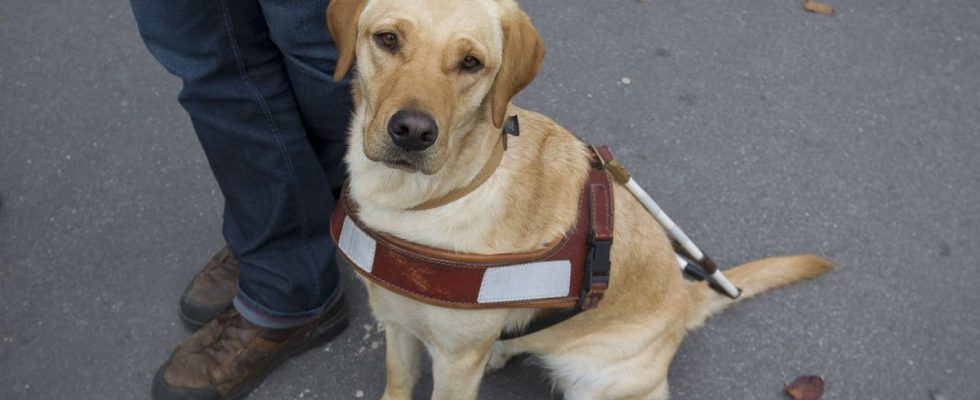The number is probably underestimated. Last year, the National Association of Guide Dog Handlers recorded 93 refusals of access to people accompanied by their guide dog, in all sectors of activity.
“It is mainly due to a lack of knowledge of the law”, according to Stéphane Boutemy, director of the association which carries out mediations with establishments reported by people with disabilities. This number, comparable to the pre-Covid period, is likely lower than the reality because incidents are not always reported.
“I took a dog to broaden my horizons. Since he entered my life, I dare to go out more,” explains Lucy Huet, trainer and visually impaired person. Hostile comment from a security guard at the entrance to a supermarket, refusal of an employee to let her and her dog enter the swimming pool: this 34-year-old Strasbourg resident has however faced several disappointments in recent years.
Since 1987, the access of guide and assistance dogs to all places open to the public has been enshrined in law.
In March, two cases of denial of access were reported on the Internet and in the media, sparking outrage. Anthony Martins-Misse, entrepreneur and Paralympic judoka, denounced an Uber driver who refused to pick him up with his guide dog, a clash that then escalated.
For his part, Timothée Adolphe, Paralympic sprinter, denounced EasyJet’s refusal to reserve a seat for him on a Paris-Toulouse flight with his guide dog. Contacted by AFP, the airline explained that its customer service had made an “error of assessment”. It plans “specific work sessions” to raise awareness among its teams.
Ignorance of the law, but also of dogs, explain these incidents, according to the actors of the sector. “People do not realize the role of the dog, they only see the potential problems, behavior or hygiene”, usually associated with animals, points out Yasmine Debarge, general delegate of Canidea, a confederation which brings together dog associations. helping people.
In addition to canines that guide blind people, there are dogs that alert their master when they hear certain sounds or anticipate an epileptic seizure.
Around 2,500 guide and assistance dogs are currently in service in France.
To fight against refusals of access to places open to the public, raising awareness remains key. Canidea is leading an educational video project around these guide dogs, intended for employees in the service sector.
“Companies have focused on adapting positions to people with disabilities, technical and human aids”, losing sight of the potential role of an animal, explains Dominique du Paty, vice-president of the Confederation of SMEs.
For Geneviève Darrieussecq, Minister Delegate for People with Disabilities, “it is totally abnormal that people are not accepted with their guide or assistance dog”.
The minister thus asked Uber to “work on specifications”, following the bad experience of Anthony Martins-Misse. More generally, it is necessary to carry out “action at the level of the professional branches of the entire tourist ecosystem”, in particular before the Olympic Games in Paris in 2024 and the expected arrival of thousands of spectators with disabilities, says -She.

